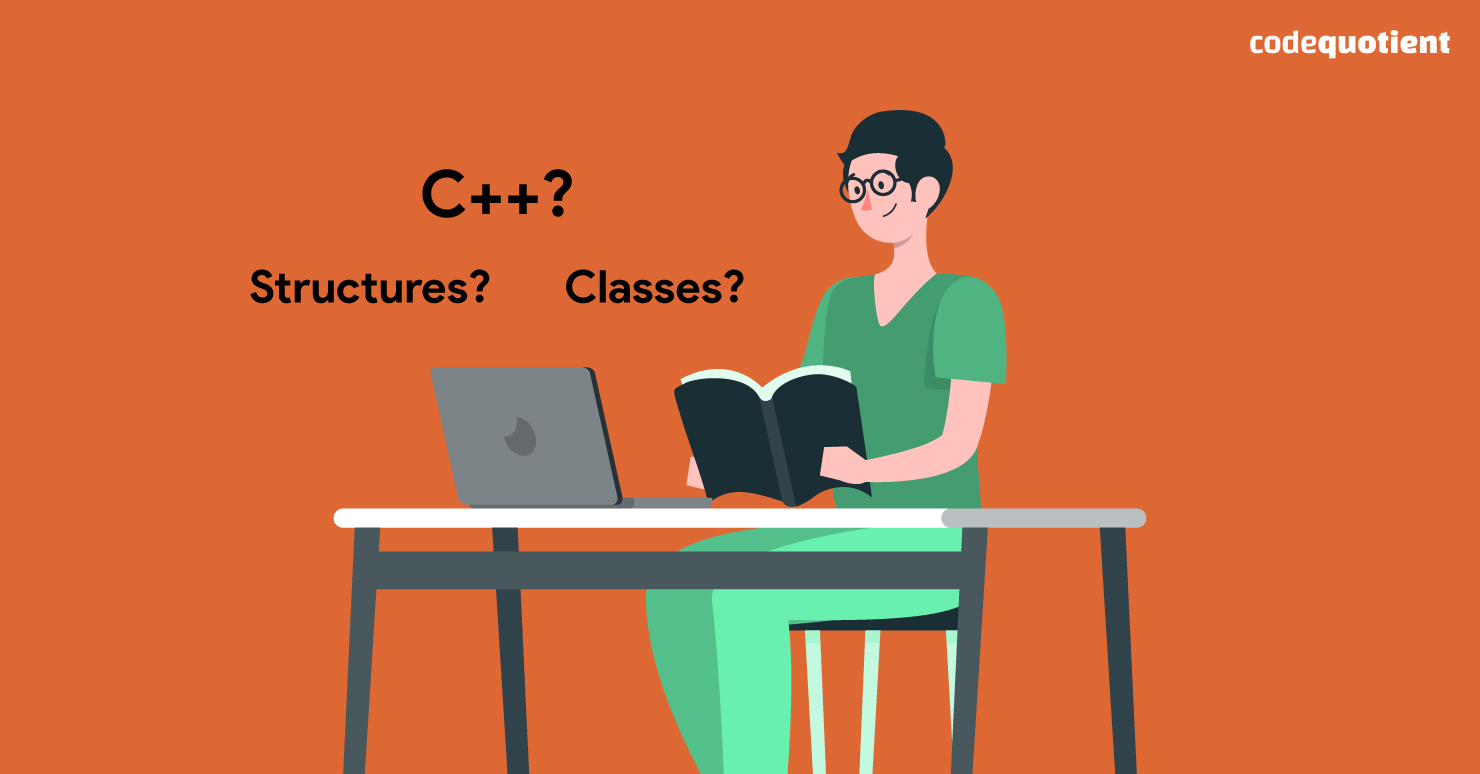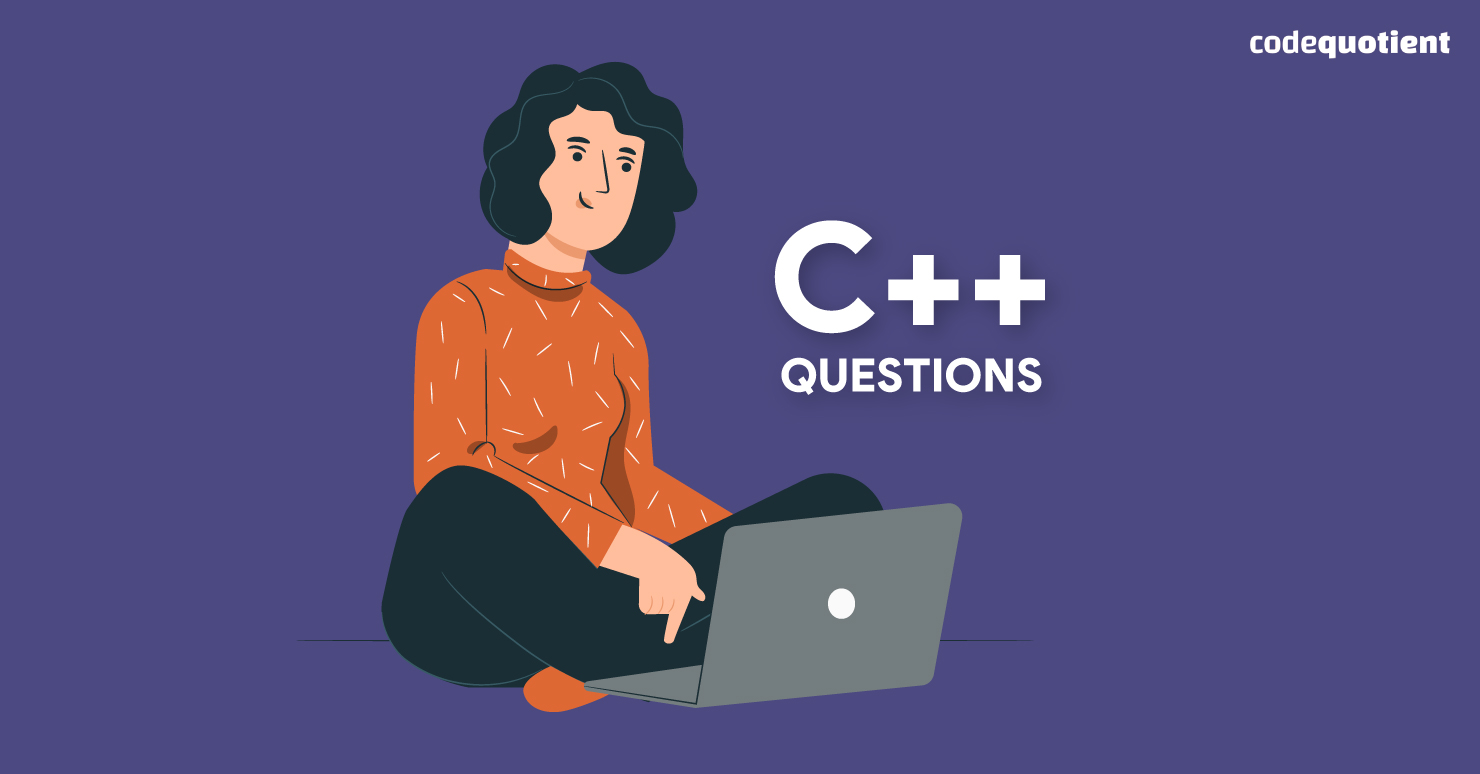C++ is among the very popular programming languages out there, and the chances are high that you will have to prepare questions regarding it for your next round of interviews.
We get it; interviewing is a challenging process. You need to know your subject at the back of your hand, and you also need to present yourself in a manner that makes the interviewer want to hire you.
Here, we have compiled a list of questions asked in C++ interviews at the advanced level. Make sure to go through them before you go for your interview:
Read: How CodeQoutient Can Help You Get a Job at Product-Based Companies
Advanced C++: Questions To Review Before Your Interview

What is the difference between C & C++?
- C is procedural programming, whereas C++ is object-oriented programming.
- In C, the data behave freely as there is no encapsulation. However, C++ employs encapsulation so that data is organised and structured.
- Overall, C supports fewer functions as compared to C++. For example, function & operator overloading, namespace features, polymorphisms, inheritance and encapsulation, all of which C++ supports.
Difference between Structures and Classes
- Structure: A user-defined data type that enables the storage of non-similar data types.
- Class: A user-defined data type that is used in object-oriented programming. It can group and access certain objects together that may share similar properties.
How is memory allocated and deallocated in C++?
- In C, calloc and malloc functions are used for allocating memory. For deallocating memory, the free function is used.
- In C++, a new operator is used for memory storage, and the delete operator is used for removing the memory.
What is operator overloading?
- C++ allows users to define a class to work in a particular way for them or if they want to assign a special meaning to it. This is done by operator overloading.
What are the two types of polymorphisms in C++?
- In C++, we can make the same message appear in many forms. This is called polymorphism and can be divided into two broad types:
- Compile-time Polymorphism: This is created by function or operator overloading.
- Runtime Polymorphism: This is created by function overriding.
What is abstraction?
- Abstraction, in C++, is the process of hiding all non-essential features of an object. When you abstract, you only reveal the essential features to the user.
What are the access specifiers in C++?
- Each class has a set of attributes or properties known as members. The access specifiers are the determinants that define how those members can be accessed.
Define inline function
- The inline function is a feature that improves and enhances the time it takes for a programme to execute its functions.
What are static members, and what are their functions?
- They are the class members that can only be declared using static keywords.
- Only one can be created for a single class and will be applied to all the objects in that class.
- It also has to be created within a class before any object.
What is Inheritance?
- Inheritance is the ability of a particular class to adopt some properties and features from another class, usually arranged hierarchically.
What is Encapsulation?
- Encapsulation is a term used in C++ that binds large amounts of data into data packets. It also helps in abstraction.
Read: If Top Tech Companies Don’t Look For A Degree, Why Do Others?
Soft Skills to Sharpen Before You Head Out
It is of utmost importance that you study the subject material scrupulously before heading out for your interview, but it is equally important to hone some soft skills.
Remember, if you can make them laugh, you have won half the battle. Here are a couple of pointers to keep in mind:
Be on-time
You have heard this one a thousand times, but it never hurts to reaffirm this idea: Always be on time. Remember, your interviewer is probably many-time busier than you, and if you make them wait, they will pass you over for someone else who reached on time.
Make sure you work backwards and plan your wake up call, breakfast and commute well.
If you get stuck, be candid
It is always better to be truthful about not knowing an answer than to pretend you know it and look foolish afterwards. So be completely honest with your interviewer if you don’t know something, but demonstrate your eagerness to learn.
The fact that you are not afraid of failure is a solid quality to showcase as a candidate. You may fail a million times, but you only have to get the answer right once to succeed.
Be prepared
Do your research. Find out the name and designation of the person interviewing you. Remember, when they are interviewing you, they are not only looking at you as a coder but also as a potential colleague who is easy to work with. So, be prepared to answer some basic personal questions as well.
At CodeQuotient, we can help you sharpen your skills as a coder and help you get placed. So, if you are interested in becoming a better coder, get in touch with us.




